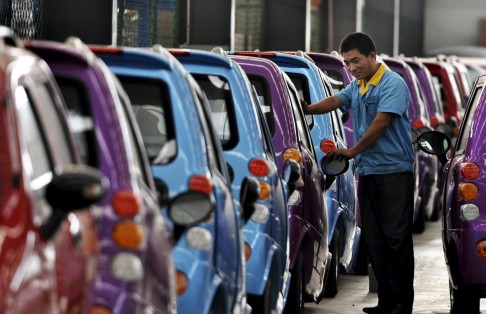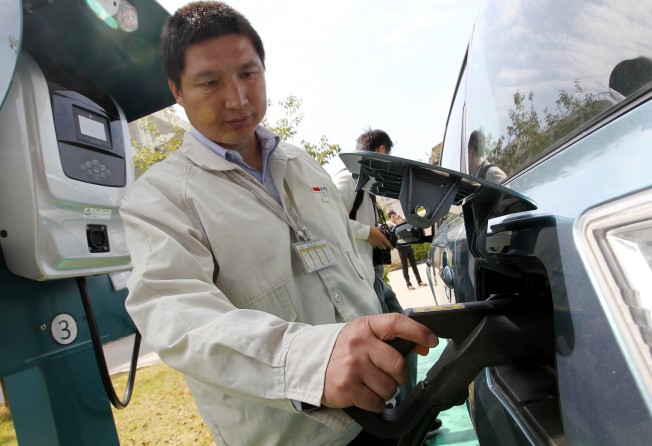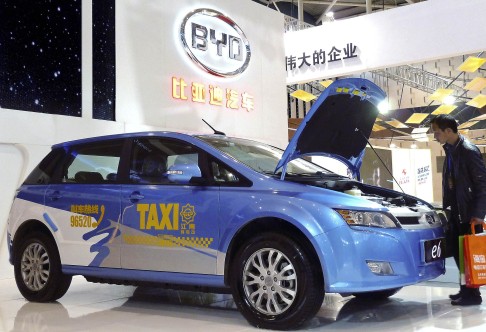
As China's shift to EVs still hamstrung by lack of infrastructure, one company in Hong Kong is busy building a national network

A Hong Kong-based electric vehicle charging company aims to push the growth of electric cars in China by developing a charging network in the country.
EV Power Group founder Martin Tsang said that by having installed 600 charging stations in cities like Beijing, Shanghai and Guangzhou, the company was quickly putting in place the infrastructure to facilitate the faster adoption of electric vehicles.
“It is a chicken and egg question, with no charger there are no EVs, with no EVs there are no chargers, so our company has made the first step,” Tsang said at the APAC Innovation Summit Smart Cities conference in Hong Kong this week.
The Chinese government has set a target of having 5 million alternative energy cars on its roads by 2020.
EV Power already operates 3,000 regular and fast chargers in shopping malls, office buildings and residential sites in mainland China, Hong Kong and Macau.
The company said it is important at this early stage to cooperate with other charging providers to maximize the number of charging points available to EV drivers and to standardise means of payment
Tsang said EV Power Group will expand its network to a further 10 to 15 Chinese cities over the next 12 months.
ABB, which makes chargers for electric vehicles, operates a fast charging system for taxis in the southern Chinese city of Guangzhou, said Walter Stein, who was acting as the company’s spokesperson.
In China, ABB has provided 500 10kW home chargers to a joint venture formed by Chinese automaker BYD and Daimler to charge its Denza electric car.
Stein said that while it would be more difficult for a company in the US or Europe to secure contracts to build charging infrastructure in China, due to protectionist Chinese policies, there is room to work with local manufacturers of electric cars and chargers.
“If you drive a Chinese car, it doesn’t matter which [charging] system you hit, you will be able to [use it],” he said.
“We work together with all the Chinese car manufacturers and all the Chinese charger manufacturers.”
ABB has installed country-wide charging networks in European countries like Denmark and Holland, where it has 150 and 200 fast chargers, respectively.
A 30-minute charge from one of its 50 kw fast charging stations can power an electric car for 100km, it claims.
It also makes home chargers that can be wall-mounted, for example in the garage, for fast charging. These work best for vehicles with a 250-km range, the company said.
Stein said the industry expects to provide one fast charger for every 50 cars on a global level.
Each charging station costs around 20,000 euros (US$22,385) to install and relies on an online payment system.
Stein said fast charging stations in China would be cheaper to install, partly because the country only has one charging system, unlike in Europe.
There are currently 10 ABB charging systems in Hong Kong, with plans to double this within 12 months.
